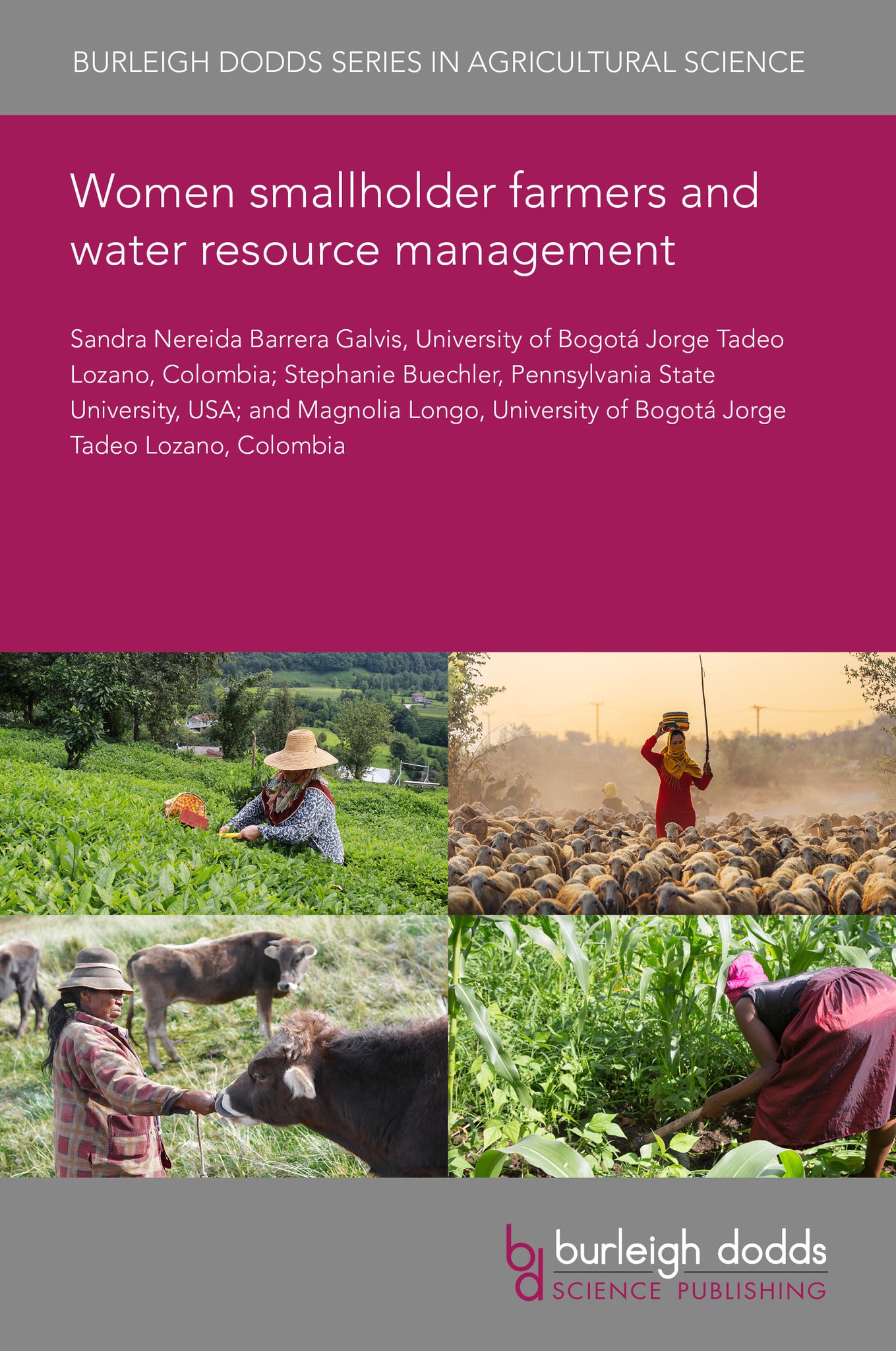We're sorry. An error has occurred
Please cancel or retry.
Women smallholder farmers and water resource management

Some error occured while loading the Quick View. Please close the Quick View and try reloading the page.
Couldn't load pickup availability
- Format:
-
06 October 2025

Women smallholder farmers globally are confronting social, economic and environmental challenges related to water resource management with impacts on access to energy, drinking water and food. Furthermore, it is common for women in rural regions to be subjected to physical, economic and slow violence. In this chapter the authors utilize a water-energy-food (WEF) nexus framework with a gender lens to analyze the experience of women smallholders in the fields and in the home in three rural communities in the Magdalena River Watershed in North Colombia. The WEF nexus framework helps reveal integral connections between these elements to show both the magnitude of the challenges women face as well as how they gain access to these resources to produce food and reproduce lives.

TECHNOLOGY & ENGINEERING / Agriculture / Sustainable Agriculture, Smallholdings, TECHNOLOGY & ENGINEERING / Agriculture / Agronomy / Crop Science, TECHNOLOGY & ENGINEERING / Agriculture / Irrigation, Sustainable agriculture, Agronomy and crop production, Agricultural science

- 1 Introduction
- 2 The water-energy-food (WEF) gender nexus in a context of violence
- 3 Case study: the Magdalena Basin, North Colombia
- 4 Case study results: agricultural activity in the Magdalena Basin
- 5 Case study results: land access for agricultural use
- 6 Case study results: access to water sources
- 7 Case study results: access to energy
- 8 The WEF nexus, climate change and violence: impacts on womens livelihoods
- 9 Conclusion
- 10 Where to look for further information
- 11 References



